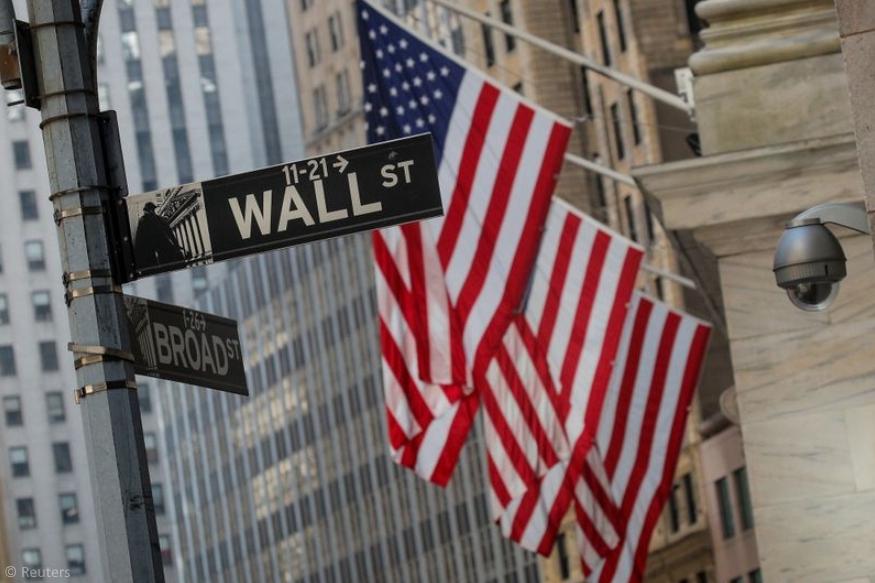Weekly Top 5: Midterms and US Inflation Data
Thursday’s US inflation data may provide some indication as to when the Federal Reserve might start cutting the pace of the rate hike. Also in the spotlight will be the results of the US midterm elections on Tuesday, where control of Congress is at stake. China is to release trade and inflation data as Beijing’s “zero virus tolerance” policy continues to wreak havoc on the economy. Meanwhile, the UK is due to release GDP data on Friday, which is expected to show the economy has entered a recession. Here’s what you need to know at the start of the week.
- US inflation data
On Thursday, US inflation data for October will be published. Market watchers will be keen to see signs that price pressure is cooling off after the Fed’s sharp rate hikes.
US Federal Reserve Chairman Jerome Powell said last week that officials are likely to raise rates higher than anticipated in an attempt to curb soaring inflation, so its higher-than-expected reading is likely to reinforce expectations that the Fed will continue its hawk course.
But cooler than expected data could force the market to take notice of a higher chance of a recession.
Economists expect the annual inflation rate in the US to be 8.0% and the monthly inflation rate to rise by 0.7%.
- US midterm elections
The US is gearing up for Tuesday’s midterm elections, when control of Congress and President Joe Biden’s program for the remaining 2 years of his term are at stake.
Republicans are leading in the polls, and many analysts believe a split government is likely the result, with Republicans in control of the House of Representatives and possibly the Senate for the second half of Biden’s term.
Democratic campaign hopes have been shattered by voter concerns about high inflation, and Biden’s public approval rating has remained below 50% for more than a year, hovering at 40% in a recent Reuters/Ipsos poll.
- Stock Market
Wall Street rebounded on Friday and the week ended weak, but the stock market rally will be tested in the coming days by the double whammy of inflation data and the US midterm elections.
Despite Friday’s advance, the Dow fell 1.39% for the week, breaking a four-week winning streak, the S&P 500 shed 3.34% for the week, and the Nasdaq fell 5.65%, the biggest weekly decline since January.
This year, inflation data has led to significant changes in the market, as its persistently high performance has forced investors to raise expectations for a Fed rate hike.
Analysts note that the unexpected victory of the Democrats could fuel fears about increased budget spending and inflation prospects.
According to Reuters, the U.S. stock market performed better during power splits, with the S&P 500 averaging 14% under a divided Congress and 13% under a Republican Congress under a Democratic president, compared to 10% when the Democrats controlled both the presidency and Congress.
- Data for China
Stocks in China and Hong Kong jumped sharply on Friday amid speculation that Beijing may be easing its strict coronavirus lockdown soon, but officials said Saturday the country is sticking to its policy.
China is due to release data on trade, inflation and new loans this week that is expected to point to continued weakness in the world’s second largest economy as COVID-19 restrictions dampen demand.
Beijing is also due to release data on foreign exchange reserves, which are dwindling as authorities try to prop up the yuan, which is at its worst since 1994.
Declining for 8 months in a row, Chinese foreign exchange reserves are in close proximity to the psychological level of $3 trillion amid broad dollar strengthening after the Fed began raising rates in March.
- UK GDP
On Friday, the UK is to publish preliminary data on economic growth for the third quarter, which is expected to show that the economy contracted by 0.5% in the 3 months to September.
Last Thursday, the Bank of England raised interest rates sharply in an attempt to fight the risks associated with inflation, which exceeds 10%, and warned of a prolonged recession.
The Bank of England is forecasting inflation to hit a 40-year high of around 11% this quarter, but Britain has already entered a recession that could potentially last 2 years – longer than during the 2008-2009 financial crisis.




